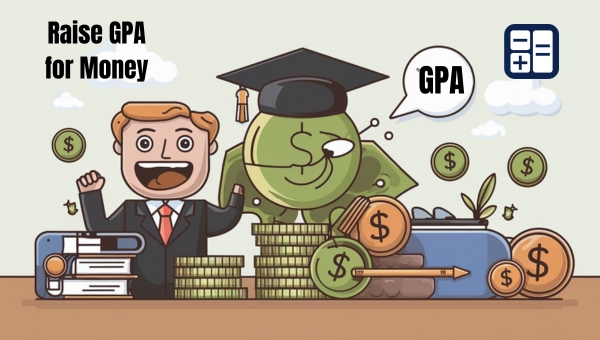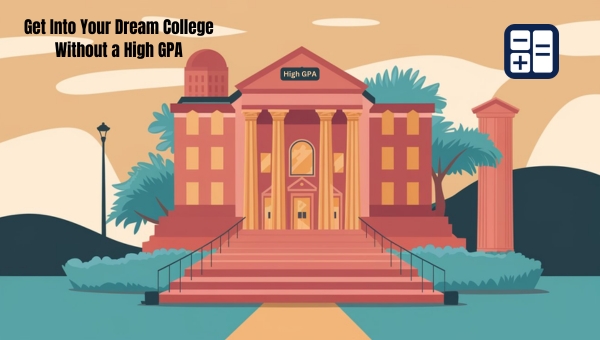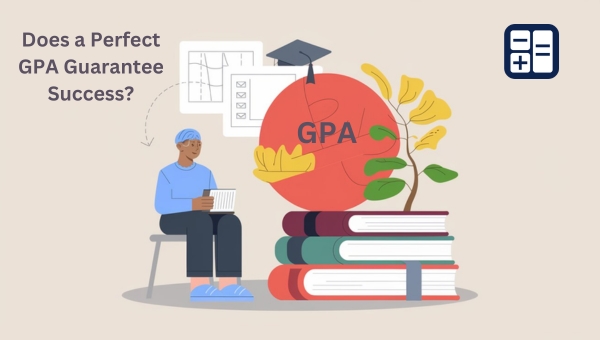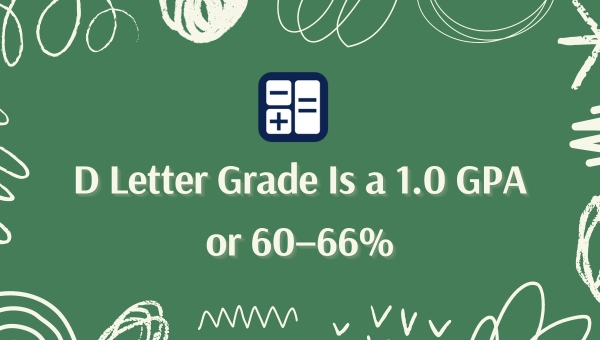C- Letter Grade Is a 1.7 GPA or 70–72%
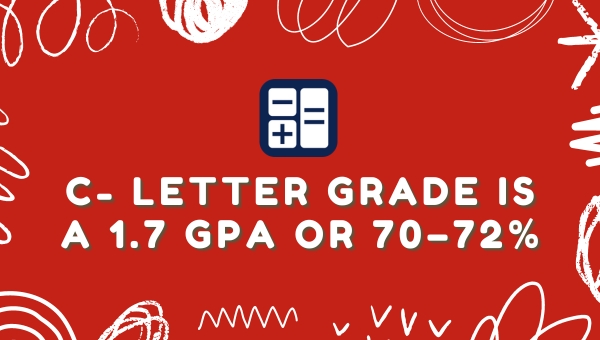
You’re probably aware that a C- letter grade translates to a 1.7 GPA or a percentage range of 70 to 72%, but what does this really mean for you? It shows you’re passing, yet there’s a lot of space for improvement.
This grade indicates you have a basic grasp of the material, but it also signals the need for more effort and better strategies. So, how does this impact your future educational and career opportunities, and what can you do to raise your GPA effectively? Let’s explore further.
What is a C- GPA?
When you’re figuring out your GPA and you see a C-, you might wonder what that really means. A C- typically translates to a numerical value between 70 and 72 percent. In terms of GPA, this grade is equivalent to a 1.7 on a 4.0 scale. Understanding this can help you gauge where you stand academically.
A GPA of 1.7 indicates that while you’ve passed your courses, there’s significant room for improvement. This grade suggests that your grasp of the material is basic, and you may need to put in extra effort to fully understand the subject matter.
It’s like a wake-up call to reassess your study habits and seek additional help if necessary. The C- GPA might affect your overall academic standing, especially if you’re aiming for a higher cumulative GPA.
It can also influence your eligibility for certain programs, internships, or scholarships that have specific grade requirements. Knowing this, it’s essential to focus on areas where you can boost your performance.
Utilize resources like tutoring, study groups, or office hours with your teachers to enhance your understanding and improve future grades.
What does a C- GPA mean for high school students?
A C- GPA can significantly influence your college options, affecting your chances with safety schools, target schools, and dream schools.
You might find that some of your dream schools are out of reach, while target schools could become safety options. It’s crucial to understand these distinctions so you can plan effectively for your future.
Safety Schools
For high school students, a C- GPA can feel like a major hurdle, yet it doesn’t spell the end of your academic journey. Safety schools play a crucial role in your college application strategy, especially when your GPA is lower than average.
These schools typically have higher acceptance rates and less stringent admission requirements, giving you a better chance of gaining admission.
When you’re looking for safety schools, consider these factors:
- Acceptance Rates: Schools with higher acceptance rates often accommodate students with a wider range of GPAs.
- Support Services: Look for schools offering robust academic support services to help you improve your grades once you’re admitted.
- Cost and Financial Aid: Ensure the school fits within your budget and offers financial aid options.
- Programs of Interest: Make sure the school has strong programs in the fields you’re interested in pursuing.
Choosing the right safety schools can provide a solid backup plan and peace of mind during the college application process.
While a C- GPA may limit some options, it doesn’t close all doors. By focusing on schools that align with your academic record and personal needs, you’ll set yourself up for future success.
Target Schools
Safety schools offer a secure option, but you might wonder what your C- GPA means for target schools. Target schools are those where your academic credentials match the average admitted student. With a 1.7 GPA, getting into these schools might be tougher, but it’s not impossible.
First, focus on enhancing other parts of your application. Admissions committees look at more than just grades. Here’s what you can do:
- Extracurricular Activities: Participation in clubs, sports, or volunteer work can showcase your commitment and leadership skills.
- Personal Statement: Write a compelling essay that highlights your strengths, experiences, and how you’ve overcome challenges.
- Letters of Recommendation: Strong endorsements from teachers or mentors can provide context for your GPA and emphasize your potential.
- Test Scores: Strong SAT or ACT scores can help balance out a lower GPA.
Additionally, consider applying to schools with holistic admissions processes. These institutions evaluate candidates based on a wide range of criteria, not just academic performance.
Do thorough research to identify target schools where your profile aligns well beyond just GPA. Remember, persistence and strategic planning can make a difference in reaching your educational goals despite a C- GPA.
Dream Schools
Navigating the path to your dream schools with a C- GPA can feel daunting, but it’s not an insurmountable challenge. While a 1.7 GPA mightn’t position you at the top of the candidate pool, there are strategic steps you can take to enhance your application and improve your chances.
First, focus on improving your GPA. Even slight improvements can make a significant difference over time. Take advantage of tutoring, extra credit, and summer school opportunities.
Consider these proactive steps:
- Showcase strengths: Highlight non-academic achievements, such as extracurricular activities, leadership roles, or community service.
- Craft a compelling personal statement: Share your unique story, emphasizing personal growth and resilience in the face of academic challenges.
- Seek strong letters of recommendation: Ask teachers or mentors who can vouch for your character, work ethic, and potential.
- Explore alternate pathways: Consider starting at a community college and transferring later or applying to schools that place less emphasis on GPA.
Proven Tips to Get a C- GPA
To achieve a C- GPA, you’ll need to prioritize time management and adopt effective study techniques.
Seek extra help when needed, and don’t hesitate to utilize study groups for collaborative learning.
Consistent review of your coursework will also play a crucial role in maintaining this grade.
Prioritize Time Management
Effective time management is crucial if you’re aiming for a C- GPA, especially when juggling multiple responsibilities. First, use a planner or digital calendar to keep track of all your assignments, exams, and other commitments. This will help you see your workload at a glance and avoid last-minute cramming.
Next, break down larger tasks into smaller, manageable steps. Instead of feeling overwhelmed by a big project, tackle it in chunks. This makes it easier to start and maintain progress.
Prioritize tasks based on deadlines and importance. Focus on what’s due soonest and what’ll have the biggest impact on your grades.
Set specific, realistic study goals for each session. Instead of saying, “I’ll study history,” say, “I’ll review chapters 3 and 4 for one hour.” This keeps you focused and makes it easier to track your progress.
Don’t forget to schedule short breaks. Continuous study can lead to burnout and decreased productivity. A five-minute break every hour can help you recharge and maintain focus.
Lastly, limit distractions. Identify what commonly pulls your attention away and take steps to minimize these interruptions. Whether it’s turning off notifications or finding a quiet study space, reducing distractions will improve your efficiency.
Effective Study Techniques
Mastering effective study techniques is key to securing a C- GPA. First, always take detailed class notes. This helps you remember important concepts and makes review sessions more productive.
Create a consistent study schedule. Dedicate specific times each day to focus on your coursework, making it easier to avoid last-minute cramming.
Next, break down your study material into manageable chunks. Instead of tackling a whole chapter in one go, study smaller sections. This technique, known as “chunking,” aids retention and understanding.
Utilize active learning methods like summarizing information in your own words. Teaching the material to someone else can also reinforce your learning.
Practice past exams and quizzes. This familiarizes you with the question formats and highlights areas you need to improve.
Don’t overlook the power of study groups. Collaborating with peers can provide different perspectives and clarify misunderstandings.
Make use of flashcards for memorization. They’re especially helpful for subjects requiring rote learning.
Lastly, ensure you get enough rest. A well-rested mind is more efficient at processing and retaining information.
Seek Extra Help
When you’re aiming for a C- GPA, don’t hesitate to reach out for extra help. The resources available to you can make a significant difference in your understanding and performance.
First, talk to your teachers. They can clarify concepts you find difficult, provide additional resources, and even offer tips tailored to your learning style. Don’t wait until you’re falling behind; proactive communication can prevent issues before they become overwhelming.
Tutoring centers are another valuable resource. Many schools offer free or low-cost tutoring, where you can receive one-on-one assistance in specific subjects. Tutors can break down complex topics into manageable chunks, making it easier for you to grasp the material.
Online resources can also be a lifesaver. Websites like Khan Academy, Coursera, and even YouTube have countless educational videos that can help you understand difficult concepts. These platforms allow you to learn at your own pace, revisiting challenging topics as needed.
Lastly, consider hiring a private tutor if you have the means. A private tutor can provide personalized attention and strategies tailored to your needs.
Utilize Study Groups
Joining a study group can be a game-changer for achieving a C- GPA. When you collaborate with peers, you gain different perspectives on the material, which can make challenging concepts easier to understand. Study groups provide a supportive environment where you can ask questions and clarify doubts without feeling judged.
In a group setting, everyone brings their strengths to the table. Maybe you’re good at taking notes, while someone else excels at explaining complex ideas. By pooling your resources, you can cover more ground than studying alone. Plus, teaching others what you know reinforces your own understanding.
Another benefit of study groups is accountability. When you’re part of a group, you’re more likely to stick to a study schedule because others are counting on you. This helps you stay consistent and avoid last-minute cramming, which is often less effective.
You’ll also find that discussing topics aloud helps you retain information better. Verbalizing thoughts and hearing different viewpoints can make the material more memorable.
Practice Consistent Review
Consistent review is a cornerstone of maintaining a C- GPA. It’s essential to regularly revisit your notes and course materials.
By doing so, you reinforce what you’ve learned and clarify any confusing points before they become bigger issues. Set aside time each day for review, even if it’s just 15-20 minutes. This consistent effort can prevent information from slipping through the cracks.
Don’t wait until the night before an exam to cram. Instead, break your study sessions into manageable chunks spread out over time. This method, known as spaced repetition, helps improve long-term retention. Use tools like flashcards, summaries, or practice quizzes to test your understanding and identify weak areas.
Create a study schedule and stick to it. Consistency is key, so make it part of your daily routine. Keep your study environment organized and free from distractions. Turn off your phone or use apps that block social media during study time.
Lastly, review feedback from your assignments and exams. Understanding where you went wrong can guide your future study sessions. By practicing consistent review, you’re more likely to stay on top of your coursework and maintain that C- GPA.
How to Raise Your GPA Fast?
Many students find themselves wondering how they can quickly boost their GPA. First, focus on acing your assignments and exams. Prioritize subjects where you can realistically improve your grades. Use a planner to organize study sessions, and don’t hesitate to seek help from teachers or tutors.
Next, participate actively in class. Participation can sometimes contribute to your grade, and it keeps you engaged with the material. Take advantage of extra credit opportunities whenever they’re available. These can provide a quick boost to your overall grade.
Don’t forget to form or join study groups. Collaborative learning can help you understand complex topics better and keep you motivated. Reviewing notes regularly instead of cramming can also make a significant difference.
If you’re struggling in specific courses, consider dropping them before the withdrawal deadline. This can prevent a poor grade from dragging down your GPA. Just make sure it won’t affect your full-time status or financial aid.
Lastly, manage your time efficiently. Balance your academic responsibilities with extracurricular activities and personal time. This holistic approach can reduce stress, allowing you to perform better academically.
Conclusion
So, now you know that a C- GPA means 1.7 or 70-72%. It shows you’ve got the basics down but need some extra effort to really excel. Don’t worry, though!
By staying focused, seeking help, and using smart study strategies, you can boost your GPA. Remember, your GPA is important for your future opportunities, so take action now to improve it. You’ve got this!
